Government Fighting Back Against S&P?
Is S&P's downgrade of the US bond rating "free speech" and thereby protected by the Constitution?
WSJ reports that there may be a backlash in Washington against S&P:
Standard & Poor’s downgrade of the U.S. government’s credit rating has created something few thought possible: a bipartisan consensus in Washington.
Unfortunately for S&P, the rating firm is the one in the crosshairs. Democrats and Republicans in Congress are gearing up to put it under investigative scrutiny and do more to restrict the influence of S&P and its peers in financial markets.
Democrats are particularly angry about S&P’s alleged $2 trillion mistake in estimating total federal deficits over the next decade. The firm changed the forecast at the Treasury Department’s urging, but went ahead with the downgrade anyway, saying the change didn’t greatly affect its analysis.
The Senate Banking Committee staff is gathering information, and “all options remain on the table,” including whether to hold a hearing, according to a committee aide.
‘[…]
U.S. banking regulators have struggled to find an alternative gauge for the creditworthiness of bank assets, particularly in rules governing how much capital institutions need to hold as protection against losses. In almost a year of work, the Federal Reserve, the Federal Deposit Insurance Corp. and the Comptroller of the Currency haven’t yet found a solution to propose.
Bank trade groups have been pushing Congress to soften the provision, arguing that any alternative system would be expensive to develop and potentially less effective. John Walsh, acting head of the OCC, has asked several times for Congress to allow regulators the flexibility to keep ratings in the mix of risk measures. But now, “the idea of repealing that provision is off the table,” said Jaret Seiberg, a Washington analyst with investment bank MF Global. “It’s hard to see any reason why Senate Democrats are going to allow that to proceed.”
Rep. Barney Frank of Massachusetts, the top Democrat on the House Financial Services Committee and co-author of the Dodd-Frank bill, said the downgrade shows he was right to restrict the role played by the raters. “They did a terrible job” in the run-up to the financial crisis, assigning triple-A ratings to many mortgage-related securities that quickly plunged in value, Mr. Frank said.
Tyler Cowen is pensive: “If all they do is take away the protected political status of those agencies, I am fine with the outcome but still I do not like the process. That the agencies were a) often mistaken in the past, and b) lobbied the government for privileges in the past, does not appease me. Exercising free speech rights should not lead to regulatory retaliation from Congress, even if some of the changes are good ones.”
But S&P isn’t simply exercising free speech rights. Their ratings have previously had quasi-legal status and have real impact on the operation of the United States Government and the national economy. Taking action to limit that power in the wake of questionable exercise is perfectly reasonable, if not prudent. And it’s particularly defensible in light of Dodd-Frank having preceded the unwelcome “speech” by a year and having been in the works much longer.
This isn’t the same thing as Italy initiating criminal investigations against the ratings agencies as a means of intimidation. There’s nothing remotely punitive about this action–especially since it would impact Moody’s and Fitch, which have kept the US at AAA status equally.
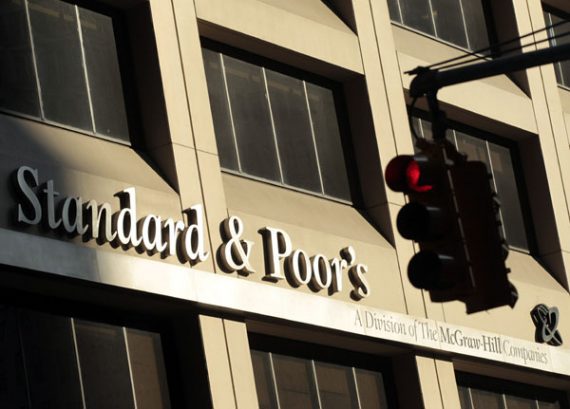

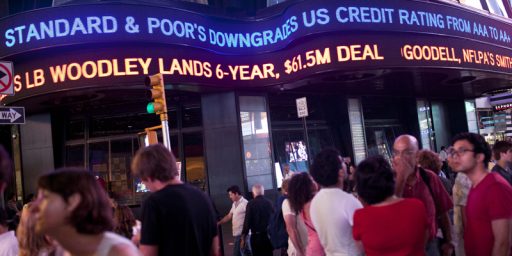
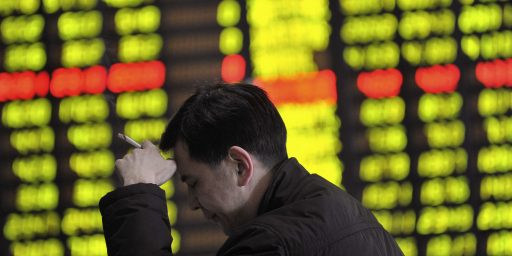

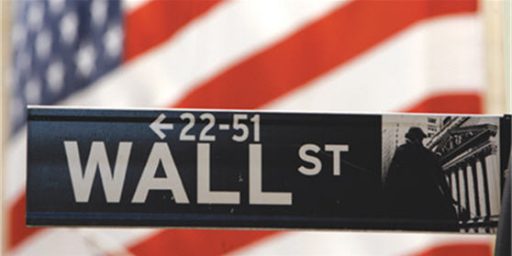
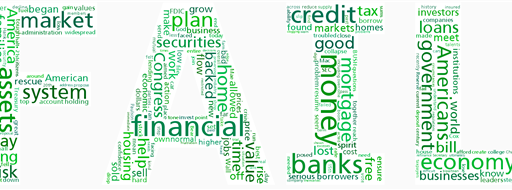
this is all that need be said.
I agree with James. The question for me is whether the ratings agencies are rating something with a reliable methodology that gives them enough added value to be granted special legal privileges. S&P has just made a conclusive economic assessment based upon political calculations that exhibit no added value to the consumer, who can just as readily reach them or weigh them independently. Not that these political considerations should not be made by the consumer, there is simply no objective criteria to support them being given special legal status.
How all the rating agencies have avoided prosecution for their part in the Subprime mess is a national shame.
So what happens next? Nationalizing the banks so they can’t question the government?
Hugo Chavez, call your office.
@Chad S:
Rather simple; the sub-prime mess was in support of something popular among the left.
I see that you have yet to run out of tin foil…
A large supply of tin foil…
@Eric Florack:
No it wasn’t. Sub-prime mortgages and securitization were created by the financial industry because they guaranteed a big payout for a short time. Everyone involved in the process new it was only a matter of time until it blew up.
Amd I fail to see how “leftists” were also responsible for Credist Default Swaps and Synthetic Bonds. These abominations weren’t the creation of any ideology, they were the mutant spawn of criminality.
I think I was the first to make a “free speech” defense in these pages, and it still makes sense to me.
The question of whether the 10 “Nationally Recognized Statistical Rating Organizations” (NRSRO) are too empowered is easily separable.
FWIW though, I think this line is overblown:
No, they do not have “quasi-legal” status. They are simply “endorsed” to a moderate degree.
In other news, the sky did not fall.
(Really, I think the folk who said things like “the downgrade will force …” or other assertions of S&P power should show us some “after the fact” examples. We had the downgrade, where is the damage?
If this downgrade was “quasi-legal” where did it take effect?)
@john personna: You may be missing the point. The action of holding committee hearings is retaliatory on its face. In this case, the government is retaliating against an entity that the readers believe deserves to get beat up. Therefore, this isn’t retaliation, it is limited and proper action against a renegade that doesn’t deserve to be here.
It DOES all depend on whose ox is being gored (or at least, who THINKS their ox is being gored).
And the next time we want the opinion of the Standard and Poor’s rating company, we’ll TELL them what it is. Just like in high school.
@Yet another disillusioned pawn:
I don’t mind a little standard gamesmanship. There is obviously some push and push-back between ratings agencies and government right now. That’s fine with me.
It seems within bounds in the US (free speech all around), and comically Italian across the sea.
@john personna: My understanding is that some large number of buy/sell/hold decisions are tethered to the ratings. I’m not sure how it works, though, since in this case only S&P lowered the rating.
@James Joyner:
I’ve heard the claim, but I doubt it, especially in the domain of sovereigns.
See also: “How to make monkeys out of rating agencies” at the Financial Times
@john personna: Doesn’t Dodd-Frank specifically remove some of their former quasi-legal status? Although I gather that the substitute mechanism hasn’t actually been funded.
@Eric Florack: Next lie, please.
Remember the IM exchange between two S&P employees Waxman’s committee released back in 2008?
It’s clear S&P doesn’t really do analysis. It simply tags targets for downgrades and upgrades regardless of how safe it is. The SEC is publishing new regulations requiring the ratings agencies to make the models they use transparent (which S&P is fighting tooth and nail).
I can’t wait to see.
@James Joyner:
Yes:
But even then, I see the older reliance on ratings biting more with lesser securities, corporate and municipal bonds.
As we see in some articles making the rounds, there is this separate parallel idea that people buy treasuries because they are accepted collateral at the Fed. Surely we don’t think the Fed is going to dismiss treasuries after anyone’s downgrade. I’m sure they never were foolish enough to make that linkage.
The other reason people flee to treasuries is that they have both high security and high liquidity. Those people aren’t checking ratings either. They are treating treasuries as a cash equivalent, rather than a rated investment.
According to some recent reports there are trillions in corporate cash reserves, held as treasuries.
@Ben Wolf:
Grrrr. I’d forgotten that little tidbit.